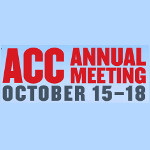Veteran trial lawyer David Elrod has joined the business and entertainment law firm Shackelford, Bowen, McKinley & Norton, LLP, as a partner in the Dallas office, marking an expansion of the firm’s existing litigation practice.
Also joining Shackelford are partner Worthy Walker, of counsel Barbara Wohlrabe and associate Hayley Ellison. The attorneys all have experience in complex commercial and energy disputes in Texas and around the country, the firm said in a release.
The release continues:
“Since 2002, this firm has grown steadily, with a focus upon what is best for our clients’ business interests. This group is a significant addition that will benefit all of our clients and position us for continued growth,” says founding partner John Shackelford. “It’s not every day that you have the opportunity to bring upper-tier litigators such as David and his team into your firm. Their addition strengthens our litigation and trial capabilities regionally and throughout the country, while also adding a robust energy litigation section.”
Elrod has nearly 40 years of experience trying bet-the-company cases and a variety of complex commercial lawsuits around the country. He was the founder of the successful litigation boutique Elrod PLLC, which he helmed for 15 years in Dallas. Among Texas’ most respected trial lawyers, Elrod represents clients in state and federal litigation involving energy, oil and gas, real estate, bankruptcy, and complex commercial litigation.
“I’m very excited about joining a dynamic regional firm where I can continue to service the litigation needs of my clients, with flexibility as to rates and billing arrangements, and also provide them access to the firm’s full-service resources. These considerations are important to all of our clients, whether Fortune 100 companies or small businesses,” says Elrod. “John and I completely agree on how to responsibly and carefully grow a law firm and how to represent clients in an efficient and effective manner. With its strong management structure, and collegial culture, Shackelford is a natural fit for us.”
Walker’s practice is focused on complex business litigation and appeals, representing individuals, small businesses and multinational corporations, primarily in energy and banking matters. His work also includes trade secret, non-compete, discrimination and other employment issues. Wohlrabe represents clients in contractual disputes, commercial torts and land use matters. Ellison represents international energy corporations on various litigation and appellate matters.
Shackelford, Bowen, McKinley & Norton, LLP is an aviation, general business and entertainment law firm with 51 attorneys and offices in Dallas, Fort Worth and Austin, Texas, and Nashville, Tennessee. The firm represents aircraft owners, operators and servicers, financial institutions, recording artists, real estate owners and developers, automobile dealerships, record labels, gas transporters, energy companies and other businesses in legal matters across the country.
Join Our LinkedIn Group






